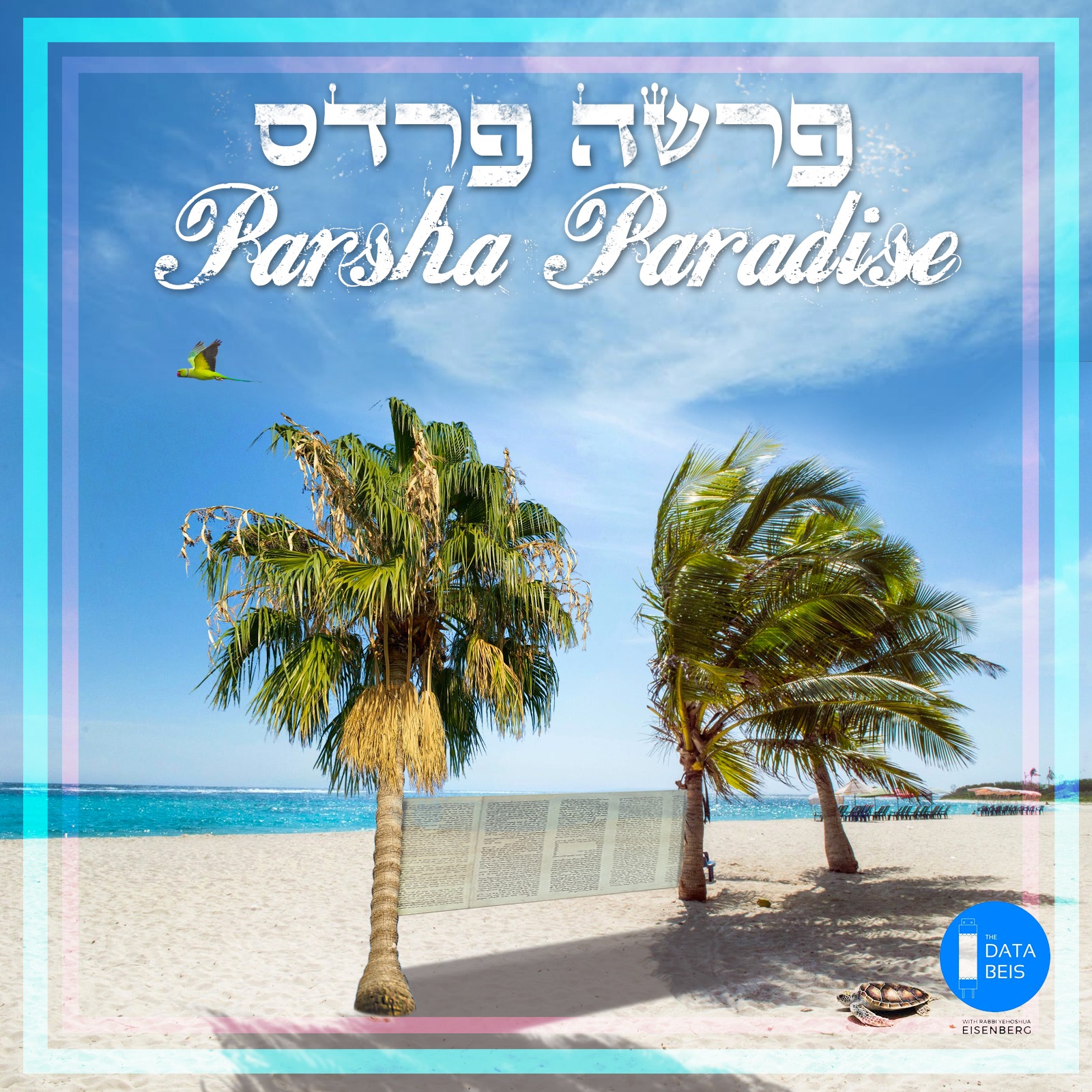This D’var Torah should be a Zechus L’Ilui Nishmas my sister, Kayla Rus Bas Bunim Tuvia A”H, my maternal grandfather Dovid Tzvi Ben Yosef Yochanan A”H, my maternal grandfather Dovid Tzvi Ben Yosef Yochanan A”H, my paternal grandfather Moshe Ben Yosef A”H, my uncle Reuven Nachum Ben Moshe & my great aunt Rivkah Sorah Bas Zev Yehuda HaKohein.
It should also be in Zechus L’Refuah Shileimah for:
-My father Bunim Tuvia Ben Channa Freidel
-My grandmothers Channah Freidel Bas Sarah, and Shulamis Bas Etta
-MY BROTHER: MENACHEM MENDEL SHLOMO BEN CHAYA ROCHEL
-Mordechai Shlomo Ben Sarah Tili
-Noam Shmuel Ben Simcha
-Chaya Rochel Ettel Bas Shulamis
-And all of the Cholei Yisrael, especially those suffering from COVID-19 and the Meiron tragedy.
-It should also be a Z’chus for an Aliyah of the holy Neshamos of Dovid Avraham Ben Chiya Kehas—R’ Dovid Winiarz ZT”L, Miriam Liba Bas Aharon—Rebbetzin Weiss A”H, as well as the Neshamos of those whose lives were taken by terrorists (Hashem Yikom Damam), COVID-19, and the Meiron tragedy.
-It should also be a Z’chus for success for Tzaha”l as well as the rest of Am Yisrael, in Eretz Yisrael and in the Galus.
בס”ד
Sponsored by:
• Anonymous
לע”נ שמואל מנחם בן אריה לייב
לע”נ לאה בת אברהם
לע”נ יהודה חסדא יקיר בן הרב שלמה
For the rest of my audio content, please visit me at The DataBeis:
https://jewishpodcasts.fm/thedatabeis
Parsha Paradise/פרשה פרדס – Vayechi: “Rochel Died On Me” ??
Audio:
https://jewishpodcasts.fm/thedatabeis/27680
Yaakov Avinu could have simply stated that Rochel Imeinu died. However, he specified, “Meisah Alai Rochel” [Bereishis 48:7], literally, “Rochel died on me.” What exactly did he mean by that?
P’shat:
Ramban suggests that Yaakov made this statement to Yosef apologetically, explaining that because Rochel passed away suddenly on the road, the burden of her burial fell solely upon Yaakov who was caring for his family and could not embalm her to preserve her until theoretically returning to Chevron.
Alternatively, Chida/Nachal Kedumim cites R’ Ephrayim that Yaakov specified “Alai,” as if to say, out of his affection for her, she died “upon me”–literally in his knees.
Remez:
The Chida/Nachal Kedumim also suggests two Remazim in our verse. Firstly, he states that the Roshei Teivos (first letter of each word) of “Meisah Alai Rochel BaDerech,” spell out Ma’arav, West, representing the place of Shechinah (e.g. Israel in comparison to Charan/Aram/Bavel, the Western Wall, etc.), suggesting that it was apparently time for Rochel to reunite with Shechinah. As premature as her death seemed, her mission in this world was complete.
Secondly, he points out that the Sofei Teivos (last letter in each word) of the same phrase share the Gematria (numerical value) with the name of Hashem, Aleph-Dalet-Nun-Yud (אדני), symbolic of the Heavenly Kingdom, suggesting that G-d willed it that Rochel entered a union with Yaakov in the first place. But, apparently now, He decided that the time was up.
Perhaps an additional Remez to explain “Alai” relates back to the other times this word appeared in connection to Yaakov.
The Zayis Ra’anan quotes the Vilna Ga’on as saying that when Rivkah Imeinu reassured Yaakov that any curse that may result from the stealing of the Brachos would be “Alai” (upon me)–upon her alone [Bereishis 27:13], she was really communicating, by way of prophecy, that as a result of this scheme, Yaakov would only suffer to the extent of “Alai,” (Ayin-Lamed-Yud), whose Roshei Teivos stand for Eisav, Lavan, and Yosef; these would be the only trials. Later, when Yaakov feared the loss of Shimon and Binyamin [Ibid. 42:36], he stated that all of the suffering has fallen “Alai” (upon me), a complaint that he was suffering beyond what he was told prior.
Perhaps, in this vein, Yaakov’s usage of “Alai” here suggests another layer to the trials of Eisav, Lavan, and Yosef. Rochel being taken away from Yaakov is the summary of all these travails. Eisav’s wickedness led to Leah’s desperation for marriage to Yaakov in Rochel, Lavan kept Rochel out of Yaakov’s reach for as long as he could, and Yosef’s absence represents the sting of Rochel’s loss.
Drash:
Sforno cites the Gemara in Sanhedrin [23B] that whenever a woman dies, she is dead to her husband more than she is to anyone else. In other words, as her husband, Yaakov was most deeply impacted by her death. Her death was upon him.
Alternatively, Or HaChaim understands the word “Alai” as Yaakov’s confession of guilt, that Rochel died “because of me,” or “on my account.” What did Yaakov do to cause her death? One basic approach, he suggests, is that Yaakov unwittingly cursed her amidst his denial of any culpability in the theft of Lavan’s Teraphim. Yaakov cursed the culprit who, unbeknownst to him, was Rochel.
Sod:
The Megaleh Amukos adds that because Yaakov cursed her and caused her death, saying that the thief should not live using the word “Yichyeh,” he was cursed too and lost 33 years of his life, corresponding to the Gematria of “Yichyeh.” Thus, perhaps “Meisah Alai Rochel” can be understood as “Rochel died because of me” and also “at my own direct expense.”
Or HaChaim/Reishis Chochmah [Sha’ar Kedushah 14:18] cite Zohar [1:175A] who suggests that Yaakov took guilt for having delayed his Neder to “tithe” to Hashem, another suggestion that it was because of his negligence that Rochel died.
Whatever Yaakov Avinu meant when describing how Rochel Imeinu was taken from him, Chazal essentially teach us that Rochel was taken from him the way she was so that she could be there for us, on the roadside to cry for us as we were sent to Galus. In Zechus of those tears, we should return from that Galus and experience the ultimate Geulah with the coming of Moshiach, Bimheirah BiYomeinu! Chazak! Chazak! V’Nis’chazeik! Have a wonderful Shabbos!
-Yehoshua Shmuel Eisenberg

